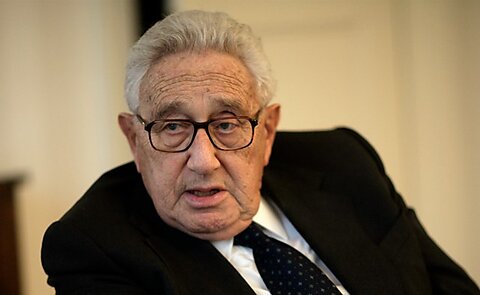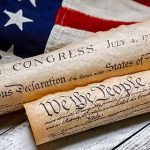
Justin Logan
Last week, Henry Kissinger died at the age of 100. As the man inspired revulsion on the left, so did his death inspire arch obituaries there: the gist of my friend Spencer Ackerman’s obit is accessible right in the title: “Henry Kissinger, War Criminal Beloved by America’s Ruling Class, Finally Dies.” And as these things go, if the left dislikes something, the right must praise it. So for National Review, not only was Kissinger merely a man whose life’s work was “studying [turmoil], managing it, trying to tamp it down,” but he also “was not a war criminal.”
Above all the commentaries, though, was our colleague Patrick Porter’s piece in The Critic, describing HK as “The Man Who Loved Power.” My friend’s prose is always elegant, but particularly so here. I’ll leave you a long excerpt:
Kissinger is a warning above all about power. Realism, the tradition from Thucydides to Morgenthau that he identified with, encourages an acceptance and respect for power, especially hard power, as the ultima ratio of international life. That respect demands some restraint and some sense of civic purpose, given the world’s tendency towards hostile balancing, and given that power can corrupt its possessor. We cannot opt out of power politics. But that is no alibi to yield to its corruptions.
Kissinger, however, not only respected but loved wielding it. If Kissinger is to be remembered as a member of the realist family and its pursuit of Realpolitik, he embodied its darker form, crude and self‐indulgent Machtpolitik. Kissinger’s behaviour suggests so‐ trying to sabotage a nation’s peace negotiations in order to advance one’s career is the definition of power‐loving…
Kissinger practised power politics as much against his own republic as in the wider world. With his exotic accent and continuous harping on democracy’s frailties in the world of diplomacy, he knowingly trafficked on an American insecurity, the worry that the innocent young nation needs the guidance of the wised‐up old world, as if America did not have its own exemplars of effective diplomacy long before Henry turned up. And his underlying impulse was not to tutor the republic. Hans Morgenthau, a civic‐minded realist who knew Kissinger well, identified the actual motor: “Kissinger has done, during his adult life, very little that was not oriented toward a particular aim in terms of his personal service and particularly his personal power. And he has been eminently successful.” Full stop.
Please do read the whole piece.
But there are two things to add to Porter’s excellent statement: First is that where favoring realism and favoring war parted ways, Kissinger generally sided with war. As one of my old realist professors used to put it, “all American realists opposed the Vietnam War, except for Henry Kissinger. And all American realists opposed the Iraq War, except for Henry Kissinger.” As Kenneth Waltz would later recall in a 1998 interview, the two men met in 1968 and discussed the war in Vietnam:
We agreed completely: hopeless, pointless, no American interest at stake. But he believed… If we get out of Vietnam, just withdraw, the McCarthy period in American politics will pale into insignificance. American society will just blow up. There will be such recriminations, because we will be seen as having sold out.
Almost 17,000 US servicemembers died in Vietnam in 1968 and another 20,000 or so died in the war after 1968. Some alacrity—and even risk regarding his own political standing—was called for.
Secondly, Kissinger did more than anyone to make the concept of foreign policy “realism” synonymous with “grotesque indifference to human slaughter.” This did serious damage to the realist brand, and probably still does. For example, Reihan Salam, who now runs the Manhattan Institute, wrote a 2014 article answering his own question, “Why am I still a neocon?” in large part by pointing to Kissinger and Nixon’s support for the Pakistani military’s slaughter of hundreds of thousands of Bengalis, including his uncle. Realists who predated him, like Hans Morgenthau, as well as realists who came after him, thought very carefully about morality in the conduct of foreign policy.
Beyond the horrors in Bangladesh, or in Cambodia, or elsewhere, some of Kissinger’s utterances just pierce contemporary ears. For example, Kissinger offhandedly remarked to President Nixon in 1973 that, “The emigration of Jews from the Soviet Union is not an objective of American foreign policy. And if they put Jews into gas chambers in the Soviet Union, it is not an American concern. Maybe a humanitarian concern.” I suppose the cynical reading here is supposed to be exculpatory: perhaps the Jewish Kissinger was trying to endear himself to the anti‐Semitic Nixon via this horrible remark. But Kissinger also inexplicably told the author of his 1992 biography, Walter Isaacson, that, “If it were not for the accident of my birth, I would be antisemitic.” Who is this person?
Not someone who should be the lodestar of a foreign policy school of thought in the 2023 United States. The Sino‐Soviet split was an important and salutary Cold War development, although the US role generally and Kissinger’s in particular have both been overplayed historically. But for many of those who call ourselves realists, Kissinger is not, and has not been our inspiration.




